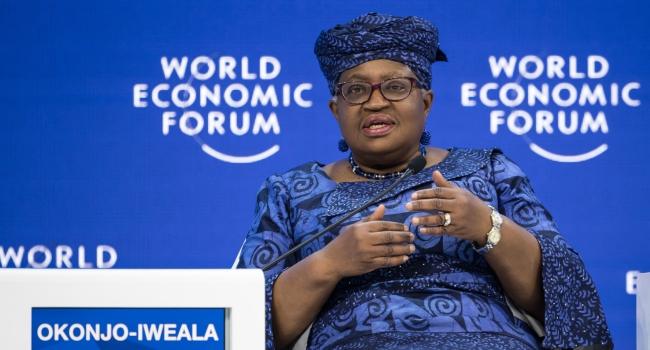World Trade Organization (WTO) Director-General, Dr. Ngozi Okonjo-Iweala, has called for a shift in Africa’s economic strategy, stating that access to aid should be seen as a thing of the past. Instead, she urged African nations to focus on attracting investment and mobilizing domestic resources to drive sustainable development.
Speaking at the African Union (AU) meeting, Okonjo-Iweala highlighted the pressing geopolitical challenges and economic realities facing the continent. She stressed that African leaders must recognize these difficulties as opportunities to reshape their economic policies.
“One of the key things that is emanating is a recognition of the present very difficult geopolitical context where we are in,” she stated. “Africa really needs to change its mindset on access to aid. I think we can begin to think of it as a thing of the past.”
Read Also: WTO Chief Okonjo-Iweala commends Philippine president for tackling trade conflicts
The WTO chief emphasized that Africa must prioritize harnessing its own financial resources rather than relying on external assistance. She pointed out that the continent holds approximately $250 billion in pension funds that remain largely underutilized.
“We need to find a way to tap these funds,” she noted. “Pension funds from South Africa, Nigeria, Kenya, Morocco, Botswana, and Namibia collectively hold significant resources. However, regulatory frameworks must be adjusted to allow these funds to be invested within Africa rather than abroad.”
She also highlighted the role of multilateral development banks such as the African Finance Corporation and the African Development Bank in driving economic growth. According to her, African governments should adequately capitalize these institutions to expand their balance sheets and meet the continent’s growing infrastructure needs.
“Our multilateral banks have a combined balance sheet of about $70 billion, yet Africa requires over $200 billion annually for infrastructure development. Instead of looking outside for support, we need to strengthen our own institutions,” she explained.
Dr. Okonjo-Iweala cited Nigeria’s successful issuance of a $300 million diaspora bond during her tenure as finance minister as an example of how African countries can mobilize external financial support from their citizens abroad.
Beyond financing, she stressed the need for Africa to add value to its vast natural resources instead of exporting raw materials for processing overseas.
“Almost every head of state here is talking about Africa’s large discoveries of lithium, manganese, and copper—critical minerals for electric vehicle batteries. The challenge is ensuring that these resources are processed on the continent to create jobs and boost trade,” she said.
Okonjo-Iweala reiterated the WTO’s commitment to identifying and addressing barriers that hinder African trade. She revealed that the upcoming 14th WTO Ministerial Conference, set to take place in Cameroon, would serve as a platform for Africa to push for reforms that facilitate intra-African and global trade.
“The only way we will finance ourselves is by growing our economies, trading more, and adding value to our products. At the WTO, we are working to remove obstacles that prevent African countries from fully benefiting from global trade,” she stated.
As Africa navigates an increasingly complex global economy, Dr. Okonjo-Iweala’s call to action is not only timely but important for self-sufficiency and economic resilience. With proper investment strategies, regulatory reforms, and strengthened trade policies, African nations may indeed be able to move away from aid dependency and build a more sustainable future.
